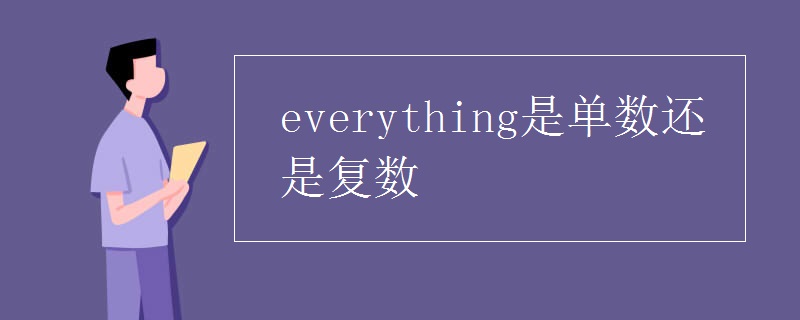-
-
everything作为主语是单数,作为宾语是单数,也是复数。例:(主语)Everything is settled.We'll leave tomorrow morning.(宾语)What happened is exactly everything that I predicted.

everything的用法
1.用作主语,谓语用单数;使用代词时,用it。如:
Everything is ready, isn’t it? 一切都准备好了,是吗?
2.与not连用,通常构成部分否定。如:
Money isn’t everything, is it? 金钱不是万能的,对吧?
3.受形容词修饰时,形容词应后置。如:
There is everything wrong with this place.这个地方全不对头了。
Everything useful should be kept. 每一件有用的东西都应该保存好。
4.后接定语从句时,通常用关系代词that来引导(that作宾语时通常省略)。如:
Have you everything that you need?你需要的东西都有了吗?
I could understand everything (that)she said.她说的事情,我都明白。
偶尔也可见到用which代替that在everything后引导定语从句,但是很少,学生宜慎用。
some any everything anything区别
凡是不定代词作主语,谓语动词都用单数,如Everything is ok.
不定代词something(某物、某事),anything(任何事物),everything(一切事物)作主语的时候,谓语动词使用单数形式。
some和any都有“一些”的含义,都能修饰可数名词和不可数名词,但用法却大有不同。
some一般用在肯定句中
如:There are some girls in the classroom.教室里有一些女孩。
some有时也用于疑问句,表示期望得到肯定回答,并不表示对某事有疑问。
如:Will you give me some ink?请给我一些墨水好吗?
any一般用于疑问句和否定句中
如:Are there any maps on the wall?墙上有地图吗?
There aren't any trees behind the house.房子后面没有树。